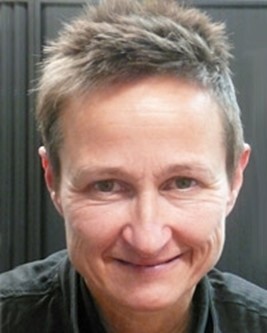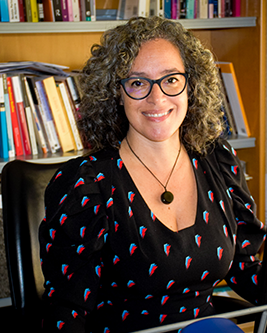Keynote speakers
Prof. Ineke Sluiter
Professor of Greek at the Leiden University Centre for the Arts and Society

Ineke Sluiter (PhD 1990) is a Distinguished University Professor of ancient Greek at Leiden University and the former president of the Royal Netherlands Academy of Arts and Sciences (KNAW). She is a corresponding fellow of the British Academy, and a member of the KNAW and the Academia Europaea. In 2010, she received the Spinoza Prize, the highest academic distinction in the Netherlands. In 2017, a consortium of classical scholars, historians and archeologists under her leadership won a so-called Gravitation Grant (18.8 M €), the first time a research grant of this magnitude was awarded to a Humanities consortium. The Anchoring Innovation program has shown how innovation can affect all domains of society and it emphasizes the importance of ‘the human factor’ in innovation.
Sluiter’s research has focused on ancient ideas on language, public debates in Antiquity, the study of ancient values, ancient ideas on innovation, and cognitive approaches to ancient Greek literature. She is the co-editor of the Oxford University Press book series ‘Cognitive Classics’.
Recent book publications include:
–Social Psychology and the Ancient World. Methods and Applications (ed., with Luuk Huitink and Vlad Glaveanu), Leiden 2025, Social Psychology and the Ancient World – Methods and Applications | Brill;
–Minds on Stage. Greek Tragedy and Cognition (ed., with Felix Budelmann), Oxford 2023;
–Agents of Change in the Greco-Roman and Early Modern Periods: Ten Case Studies in Agency in Innovation (ed. with Silvia Castelli), Leiden 2023, Agents of Change in the Greco-Roman and Early Modern Periods – Ten Case Studies in Agency in Innovation | Brill
Prof. Ana-Cristina Santos
Centro de Estudos Sociais da Universidade de Coimbra (CES-UC)

Ana-Cristina Santos is a Sociologist and Senior Researcher with Habilitation in Human Rights at the Centre for Social Studies, University of Coimbra, where she is Co-Director of the Feminist Studies Doctoral Programme and Chair of the Democracy, Justice and Human Rights Research Line. After being awarded 2 grants by the European Research Council (in 2013 and in 2022), she now leads TRACE, centred on LGBTQI+ ageing in Southern Europe, funded by ERC. Cristina is also an elected member in her second mandate of the Executive Committee of the European Sociological Association, working in the areas of Communication, International Relations and Postgraduate Studies, and chairing the committee on Public Sociology, Diversity and Sustainability. Her most recent books are: The SAGE Handbook of Global Sexualities (2020); The Tenacity of the Couple Norm (UCL Press, Open Access, 2020); LGBTQ+ Intimacies in Southern Europe: Citizenship, Care and Choice (Palgrave, Open Access, 2023); and A Research Agenda for Sexuality and Aging (Edward Elgar Publishing, Open Access, forthcoming 2026).
Contacts:
https://www.ces.uc.pt/en/ces/pessoas/investigadoras-es/ana-cristina-santos
BlueSky: @anacristinasantos.bsky.social
Pronouns: she/ her

